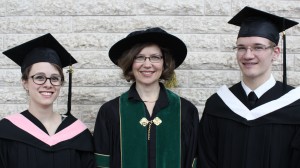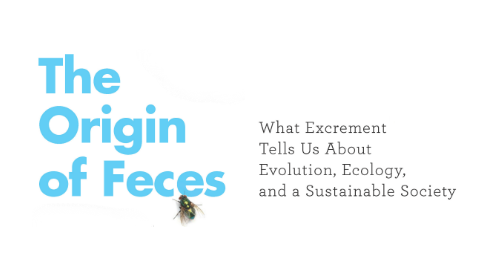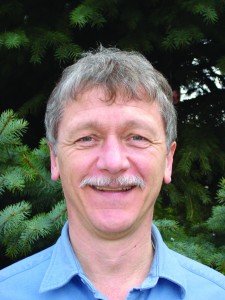When Darnell Barkman found out he would be home in Canada during the Canadian School of Peacebuilding (CSOP), he had to enrol.
Barkman was one of 84 students from around the world who gathered at Canadian Mennonite University (CMU) June 15-26 for the school, which offers two weeks of five-day courses for peacebuilders from all faiths, countries, and identity groups.
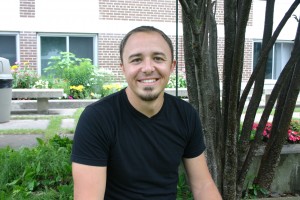
Originally from Abbotsford, BC, Barkman was in Canada on furlough after spending the past three years living in Manila, Philippines, working as a pastor and peacebuilder. It’s work he feels passionate about, but because the Anabaptist-peace position is a relatively new concept in the Philippines, it’s difficult at times.
“Peacebuilding can be very lonely work,” Barkman says, adding that in addition to learning from world-class instructors, the CSOP was massively energizing because it allowed him to connect with other peacebuilders. “It’s amazing. It’s what we need.”
Creating that sort of environment at the CSOP is key, says Valerie Smith, the school’s co-director.
“There are all kinds of ways to measure success, but to me the most important are how valuable people find their classes, and how engaged they are with their instructors and each other,” Smith says.
“The 2015 courses went very well. The instructors were a good fit, and we once again had a radically diverse student body, which adds to the richness in the classroom and in the CSOP community more generally.”
In addition to Canada and the U.S., the school included students from Nigeria, Somalia, South Africa, Vietnam, Iran, and elsewhere who travelled to Winnipeg to learn, network, and engage in peacebuilding.
Topics covered included women and peacebuilding; youth voices and peace activism; human rights and peace; conflict transformation; indigenous approaches to peace, justice, and friendship; biblical teachings of peace and justice; and peace psychology.
Instructors included Leroy Little Bear, one of the continent’s leaders in the advancement of North American Indian philosophy, and Christopher Marshall, a trained and accredited restorative justice facilitator who teaches at Victoria University of Wellington, New Zealand.
The 2015 CSOP also included a launch event for Voices of Harmony & Dissent: How Peacebuilders are Changing Their Worlds, a book exploring the stories, theory, and tools of 16 peace leaders, trainers, and activists from around the world.
Each contributor has taught at the CSOP. Smith edited the book with Richard McCutcheon and Jarem Sawatsky.
“All of the essays are written by deeply committed, experienced peacebuilders who are living what they teach,” Smith says, adding that the book was a few years in the making. “It’s really exciting to have it finished and available to the public.”
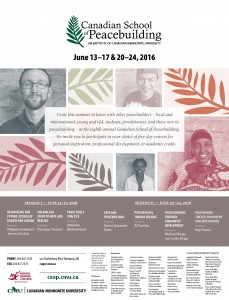 With the 2015 session over, Smith has turned her attention to the 2016 school. Registration is now open at www.csop.cmu.ca.
With the 2015 session over, Smith has turned her attention to the 2016 school. Registration is now open at www.csop.cmu.ca.
As they do every year, Smith and her colleagues have planned courses that feature exceptional instructors who are also strong peacebuilding practitioners.
CSOP always aims to provide a mix of courses that have to do with biblical and theological studies, basic peacebuilding skills, and indigenous issues.
“To be a peace school in this context with integrity, we have to do that,” Smith says.
This past April, CMU announced a new Masters of Arts in Peacebuilding and Collaborative Development, which bridges the fields of peacebuilding-conflict resolution studies and development-transformational justice studies.
Four of the courses the CSOP will offer in 2016 can be taken toward earning that MA.
“We hope that degree will enrich our programming, and that our programming will enrich that degree,” Smith says.
She adds that she is looking forward to next June.
“We’re really excited about the lineup. We’ve got fantastic people coming.”
About CMU
A Christian university in the Anabaptist tradition, CMU’s Shaftesbury campus offers undergraduate degrees in arts, business, humanities, music, sciences, and social sciences, as well as graduate degrees in theology, ministry, peacebuilding and collaborative development, and an MBA. CMU has over about 900 full-time equivalent students, including those enrolled in degree programs at the Shaftesbury and Menno Simons College campuses and in its Outtatown certificate program.
For information about CMU visit www.cmu.ca.
For additional information, please contact:
Kevin Kilbrei, Director of Communications & Marketing
kkilbrei@cmu.ca; 204.487.3300 Ext. 621
Canadian Mennonite University
500 Shaftesbury Blvd., Winnipeg, MB R3P 2N2


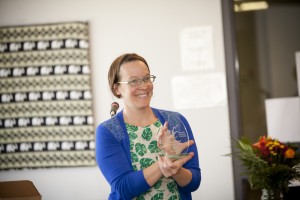
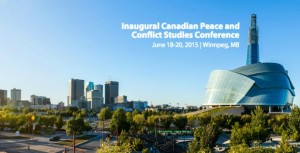
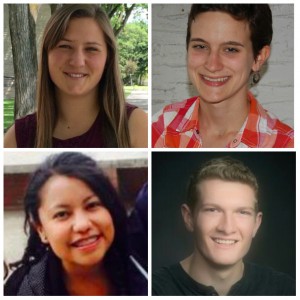
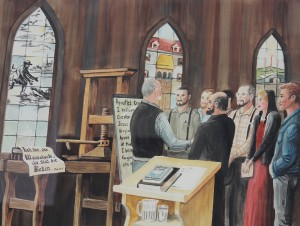
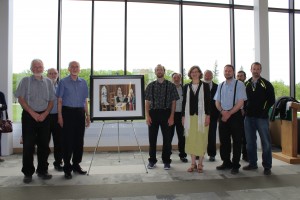
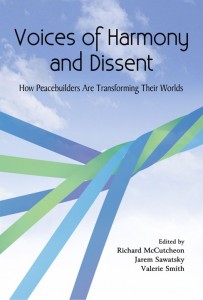
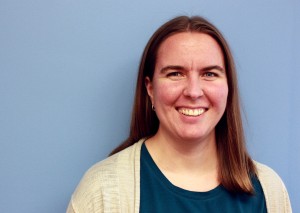
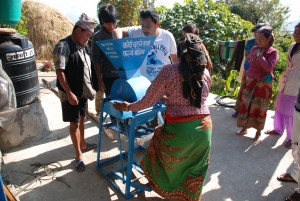 The SAK project builds upon experience gained from a
The SAK project builds upon experience gained from a 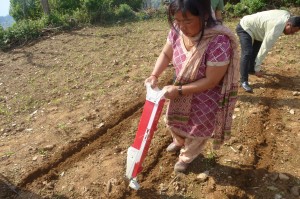 The project will address these challenges by: improving soil fertility, promoting climate change resilient crops, empowering and strengthening the resiliency of local innovators/farmers, using technology to assess farmers’ needs and collect feedback, and seeking ways to scale up the aforementioned technologies for inclusion in SAKs.
The project will address these challenges by: improving soil fertility, promoting climate change resilient crops, empowering and strengthening the resiliency of local innovators/farmers, using technology to assess farmers’ needs and collect feedback, and seeking ways to scale up the aforementioned technologies for inclusion in SAKs.![2015-06-04 - Henry Poettcker [01]](http://www.cmu.ca/media_archive/wp-content/uploads/2015/06/2015-06-04-Henry-Poettcker-01-300x199.jpeg)

